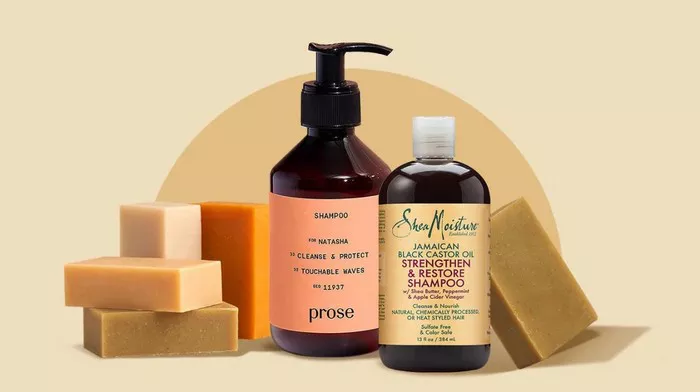In a world where natural beauty remedies are gaining popularity, homemade herbal hair oil stands out as a timeless and effective solution for maintaining luscious locks. Harnessing the power of herbs, this DIY approach ensures that your hair receives the care it deserves without the use of harmful chemicals. Follow this comprehensive guide to create your own herbal hair oil at home and indulge in the luxury of nourished and vibrant tresses.
1. Understanding the Benefits of Herbal Hair Oil
Before delving into the process of making herbal hair oil, it’s crucial to understand the benefits that these natural ingredients offer. Herbs such as amla, hibiscus, brahmi, and fenugreek are renowned for their nourishing properties. They stimulate hair growth, prevent dandruff, strengthen the roots, and add a natural shine. By using herbal hair oil, you are not only pampering your hair but also promoting its overall health.
See Also: Mastering the Art of Afro Wig Care: Hair Care Tips
2. Selecting the Right Herbs for Your Hair Type
Different hair types have unique needs, and selecting the right combination of herbs is essential for crafting a personalized herbal hair oil. For instance, if you have dry hair, consider using aloe vera, hibiscus, and lavender. For oily hair, opt for ingredients like rosemary, sage, and chamomile. Research the properties of various herbs and tailor your herbal oil recipe to address your specific hair concerns.
3. Gathering the Ingredients
Once you’ve identified the herbs suitable for your hair type, gather the necessary ingredients. This may include carrier oils like coconut oil or olive oil, and the selected herbs either in dried or powder form. Ensure that the herbs are of high quality to maximize the effectiveness of your herbal hair oil.
4. Creating the Herbal Infusion
Begin the process by infusing the chosen herbs into the carrier oil. In a heat-resistant container, combine the carrier oil and the herbs, ensuring that the herbs are fully submerged. Heat the mixture using a double boiler or a slow cooker on low heat for several hours. This gentle heating process allows the oil to absorb the beneficial properties of the herbs. Strain the mixture to remove the herb remnants, leaving you with a potent herbal-infused oil.
5. Adding Essential Oils for Fragrance
Enhance the aromatic experience of your herbal hair oil by incorporating essential oils. Lavender, rosemary, and peppermint are popular choices, not only for their delightful scents but also for their additional hair-care benefits. Essential oils contribute to the overall efficacy of the herbal oil while providing a pleasing fragrance.
6. Storing Your Herbal Hair Oil
Proper storage is key to preserving the potency of your homemade herbal hair oil. Use a dark glass bottle to protect the oil from light, and store it in a cool, dark place. This prevents oxidation and maintains the freshness of the oil. Remember to label the bottle with the ingredients and the date of preparation for easy reference.
7. Applying Herbal Hair Oil for Optimal Results
To reap the full benefits of your herbal hair oil, incorporate it into your regular hair care routine. Apply a small amount to your scalp and hair, massaging gently to promote blood circulation. Leave the oil on for at least an hour or overnight for a deep conditioning treatment. Wash your hair with a mild shampoo to remove excess oil, and revel in the revitalized texture and shine.
Conclusion
Making herbal hair oil at home is a rewarding and empowering process that puts you in control of the ingredients applied to your hair. By customizing your herbal oil to suit your hair type and needs, you embark on a journey of self-care that transcends the superficial. With the abundance of nature’s gifts, you can now indulge in the luxury of healthy, vibrant hair without compromising on your commitment to natural beauty. Embrace the herbal elegance and let your tresses flourish with the goodness of homemade herbal hair oil.


